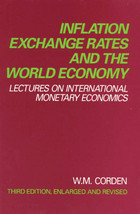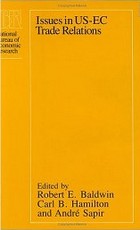
How can workers retain job security in an industry currently experiencing extensive restructuring and retrenchment? In the United States, massive layoffs in the 1980s in industries like steel have resulted in increased worker demands for job security provisions in collective agreements and legal protections against layoffs. In many Western European countries, where private-sector practices ensuring strong job security and laws regulating layoff practices were well established, the 1980s brought strong pressure from business to relax job security in order to facilitate rapid restructuring.
Susan Houseman's book presents some of the first hard evidence on the economic effects of providing job security, evidence gathered during the restructuring of the European Community's steel industry in the 1970s and 1980s. The author reviews personnel practices by the Community's leading steel companies, basing her analysis on extensive interviews with employers, workers, and government officials in West Germany, France, Britain, Belgium, Luxembourg, Italy, and the Netherlands. Drawing on economic theory, she shows that the extent of workers' rights to job security will affect how an industry optimally adjusts to a decline in demand and to a situation of excess capacity.
Using detailed plant data, she shows that job security for workers affected decisions concerning employment, production, investment, and plant closures in the industry, While job security for workers may slow the process of industrial restructuring and result in lower productivity, the author points out that it also generates important social benefits, including community stability and a more equitable distribution of the risks and costs of economic change.
This book will draw the attention of policymakers in government and in international organizations such as the European Community, the OECD, and the ILO. It will also be of interest to scholars in labor economics, industrial relations, public policy, and business.


Issues in US-EC Trade Relations presents the results of a conference organized by the NBER and the Centre for European Policy Studies. In it, North American and European trade specialists offer theoretical, empirical, and historical analyses of some of the major issues on which American and Community officials disagree and also formulate realistic policies for settling present disputes. Contributors consider such topics as the legal aspects of trade between the two regions, agricultural policy, different ways the United States and members of the European Community use embargoes to attempt to induce foreign countries to change particular political actions, the growing trend toward protectionism and responses to this policy, international trade in services, and trade policy in oligopolistic environments. In most cases, each general subject is approached from both an American and a European perspective.
READERS
Browse our collection.
PUBLISHERS
See BiblioVault's publisher services.
STUDENT SERVICES
Files for college accessibility offices.
UChicago Accessibility Resources
home | accessibility | search | about | contact us
BiblioVault ® 2001 - 2024
The University of Chicago Press









